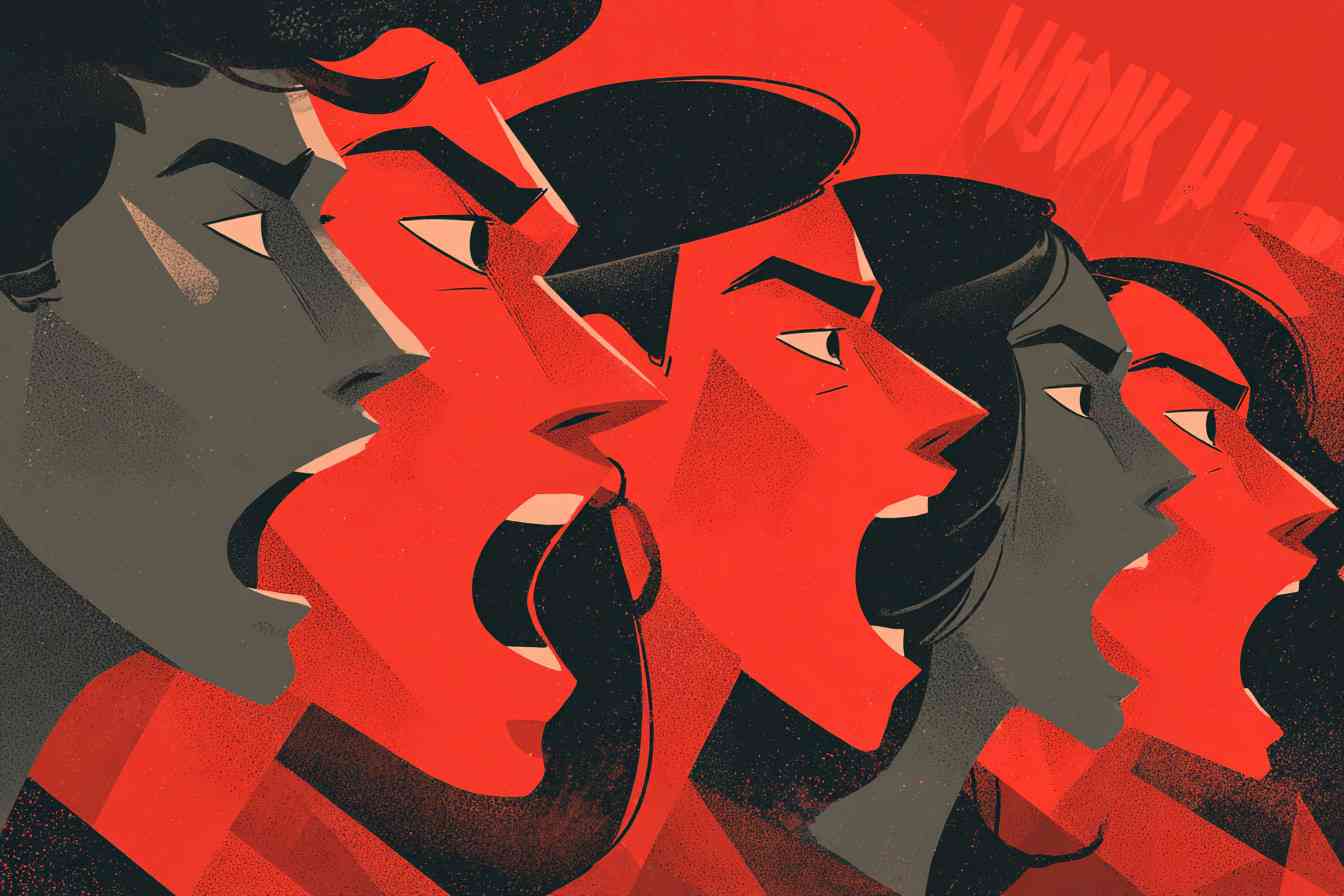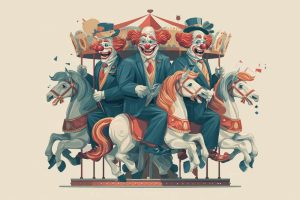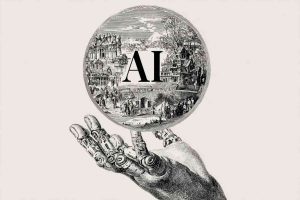The misuse of “fascism”: how a word lost its meaning and became a political weapon

From historical reality to rhetorical cliché
Few words in modern political language have been as abused, distorted, and drained of meaning as “fascism.” Once referring to a very specific authoritarian ideology born in the turbulent Italy of the 1920s, it is now an all-purpose insult hurled at anyone who dares to deviate from a certain political orthodoxy. The word, which once described Mussolini’s regime of ultranationalism, corporatism, and suppression of dissent, has been transformed into a shallow cultural slogan that means little more than “I don’t like you.”
Historically, fascism was a coherent, if grotesque, system of belief. It advocated unity between state and corporate interests, a cult of leadership, national revival, and strict control of public and private life. It rejected democracy, individualism, and liberal values in favor of hierarchy, discipline, and collective identity. Its visual and emotional power came from spectacle, mass rallies, and the worship of the nation. The term was not meant to describe a broad mood or insult an opponent, but to define a specific political phenomenon.
Yet today, the meaning has evaporated. The word “fascist” can be heard in street protests, political talk shows, and university seminars, referring to everyone from conservative politicians to free-market economists, from gender-critical feminists to skeptics of the European Union. It is no longer used to describe an actual ideology, but to delegitimize opposition. The gravity once attached to the word has been replaced by the casual sneer of online discourse.
As early as 1944, George Orwell warned in his essay What is Fascism? that the word was already “almost entirely meaningless, ” used to describe everything from farmers to fox-hunters, from shopkeepers to pacifists. Orwell wrote that it had become “a synonym for bully.” That was eight decades ago. Since then, the situation has deteriorated further, especially as the digital age has made outrage the default mode of communication. “Fascism” now serves as a moral club to silence dissent rather than a term for historical analysis.
The moral inflation of the left
In modern discourse, particularly in Western democracies, the word “fascism” has been monopolized by the political left as a tool of moral intimidation. To label an opponent a fascist is not simply to disagree with them, it is to declare them morally illegitimate. The accuser thereby elevates themselves to the role of righteous defender of democracy, and the accused becomes a caricature of evil. This inflation of moral language serves a psychological purpose: it turns complex political disagreements into simple battles between good and evil, light and darkness.
A politician who calls for stronger border controls is immediately branded a “fascist.” A writer who questions the excesses of gender ideology is “a threat to democracy.” Even a citizen expressing doubts about mass surveillance or global health regulations can find themselves accused of flirting with fascism. The absurdity of this overreach lies not only in its factual inaccuracy, but in its moral laziness. Labeling someone a fascist means you no longer need to refute them; you merely condemn them.
This inflationary use of “fascism” mirrors the logic of modern activism, which prizes emotion over analysis. Within progressive circles, to call someone a fascist signals belonging. It is a password into moral superiority. The term has become a social currency: one earns credibility not by the strength of one’s arguments, but by the vehemence with which one denounces “fascists.” Yet the more the word is used, the less it signifies.
By extending “fascism” to include nearly any form of cultural conservatism or political dissent, the left undermines its own moral authority. It trivializes the historical suffering of those who endured actual fascist regimes. It erodes the distinction between totalitarian violence and democratic disagreement. When every act of opposition is “fascism, ” then nothing is.
The convenience of labeling
The convenience of the label lies in its efficiency. Once someone is branded a “fascist, ” no dialogue is necessary. They are excluded from public life, their reputation ruined, their ideas dismissed without discussion. This is not debate; it is excommunication. The word “fascism” thus functions as a secular version of heresy. It serves the same purpose that “blasphemy” once did: it marks a thought as forbidden.
In universities, this logic has become institutionalized. Student groups organize campaigns to ban speakers labeled as “fascist, ” even when those speakers advocate positions well within democratic norms. Academics who challenge progressive dogma, on issues like identity politics, free speech, or biological sex, risk professional ostracism. The accusation of “fascism” has become a disciplinary tool. It polices the boundaries of acceptable thought.
Social media magnifies the effect. On platforms like X and Instagram, “fascist” has become a casual insult used to shame or silence opponents. It is easier to accuse someone of fascism than to debate them. The algorithm rewards outrage, not nuance. Those who shout “fascist” the loudest gain followers, likes, and digital applause. This dynamic reinforces a culture where moral accusation replaces argument.
Ironically, the mechanisms now used to suppress so-called fascism, censorship, mob intimidation, ideological conformity, bear striking resemblance to fascistic methods themselves. The left’s “anti-fascism” often becomes authoritarian in practice. It demands obedience to a moral orthodoxy and punishes deviation with social or professional ruin.
The irony of authoritarian anti-fascism
The rise of militant “anti-fascism, ” embodied in movements like Antifa, reveals a deep irony. These groups, claiming to fight fascism, employ tactics indistinguishable from the authoritarianism they denounce. They justify violence, vandalism, and public harassment as “defense of democracy.” They shout down speakers, burn flags, and attack journalists, all in the name of freedom.
In reality, their behavior exemplifies the psychological essence of fascism: moral certainty, intolerance of dissent, and the belief that violence is justified in pursuit of a utopian goal. As historian Robert O. Paxton wrote in The Anatomy of Fascism, the phenomenon arises not from mere nationalism, but from “a sense of overwhelming crisis beyond the reach of traditional solutions.” Modern anti-fascists, too, see themselves in a perpetual emergency, one that excuses their own authoritarianism.
The paradox is striking. The same individuals who preach tolerance and inclusivity often resort to coercion and intimidation. They silence their opponents “for the greater good.” They patrol language and thought under the banner of moral virtue. This is not democracy; it is a new form of ideological puritanism.
The anti-fascist left often fails to recognize that fascism’s core was not merely nationalism, but the desire for total control, over speech, education, and culture. By demanding ideological purity and suppressing dissent, modern “anti-fascists” reproduce the very conditions they claim to resist. The word has become an excuse for authoritarian behavior, a moral blank check.
Historical amnesia and moral confusion
The degradation of the term “fascism” also reflects a wider historical amnesia. Most people who use the word today could not define it accurately. They conflate it with general oppression, capitalism, or simply right-wing politics. This ignorance is not accidental; it is the product of a shallow educational culture that prioritizes emotional reaction over historical understanding.
Real fascism, as seen in Italy, Germany, and Spain, was an organized movement with mass support, clear leadership, and defined ideological goals. It demanded absolute loyalty to the state and a total merger of politics, economy, and identity. It was not simply “being mean” or “holding conservative views.” Yet for many activists today, the word is stripped of historical context. It is deployed to condemn anyone resisting progressive dogma.
The American journalist H. L. Mencken once remarked that “the urge to save humanity is almost always a false front for the urge to rule it.” The same could be said of modern “anti-fascism.” Behind the moral outrage lies a desire to dominate discourse, to impose a single moral language. It is not history that drives this use of “fascism, ” but ideology.
This ignorance has political consequences. By equating moderate or even centrist viewpoints with fascism, society creates a vacuum in which real extremists can thrive. When every conservative is called a fascist, the word loses its deterrent power. The moral firewall that once separated democracy from totalitarianism erodes. True fascists benefit from this confusion; they hide in the blur of exaggeration.
Cultural and linguistic decay
The corruption of language always precedes the corruption of thought. When “fascism” becomes a synonym for “anything I dislike, ” meaningful discussion becomes impossible. The degradation of the term reflects a broader cultural decay: a world where moral outrage substitutes for moral understanding, and where slogans replace ideas.
This linguistic decay has consequences beyond politics. It weakens intellectual life itself. Universities, media institutions, and even art have become arenas of ideological conformity, where fear of being labeled “fascist” stifles creativity. Writers self-censor, teachers avoid controversial topics, and journalists shape their stories to fit the prevailing moral narrative. The result is not safety or justice, but sterility.
Language has always been a battlefield. Orwell warned that when words lose meaning, freedom disappears. The careless use of “fascism” is part of that process. It transforms a serious historical concept into a weapon of emotional manipulation. It teaches people not to think, but to react.
The decay is also visible in media coverage. Outlets that once prided themselves on objectivity now resort to moral labeling as a substitute for reporting. Political opponents are described as “far-right” or “fascist” without explanation. The public absorbs these words not as analysis, but as emotion. The result is a form of psychological conditioning: opposition equals evil.
The psychology of projection
Another element in the misuse of “fascism” is psychological projection. Many of the behaviors that progressives denounce as “fascist”, intolerance, censorship, obsession with purity, moral absolutism, are visible within their own movements. The constant need to purge ideological “traitors, ” the policing of speech, the public shaming rituals on social media, all mirror the mechanisms of totalitarian politics.
In The True Believer, Eric Hoffer noted that mass movements, whether left or right, share the same psychological structure. They attract individuals seeking certainty and belonging in an unstable world. The label “fascist” thus serves not only to attack others, but to reassure oneself: “I am not like them.” It provides a moral identity in a world of confusion. Yet this self-righteousness is the seed of the very authoritarianism it condemns.
The danger of this projection is that it blinds societies to their own illiberal tendencies. When censorship is justified as “fighting fascism, ” when violence is excused as “defending democracy, ” the line between freedom and control disappears. The more the word “fascism” is used to describe others, the less its users reflect on their own authoritarian impulses.
The political consequences
Politically, the misuse of “fascism” has poisoned public discourse. It has made compromise nearly impossible. If one side is convinced that the other is “fascist, ” dialogue becomes moral surrender. The word acts as a wall, preventing the exchange of ideas that democracy requires. It turns political opponents into existential enemies.
This dynamic is particularly visible in Western democracies. In the United States, European Union countries, and the United Kingdom, left-wing commentators frequently describe populist movements as “fascist, ” ignoring the legitimate grievances that fuel them, economic decline, loss of cultural identity, bureaucratic overreach. Instead of addressing these concerns, they are dismissed as symptoms of “hate.” Such contempt only deepens division.
In Europe, this language has been institutionalized. The European Parliament and Commission routinely label dissenting governments as “authoritarian” or “illiberal, ” conflating conservative policy with extremism. The moral vocabulary of fascism has become a diplomatic weapon. Yet behind this sanctimony lies the same elitist impulse that gave rise to technocratic governance: the belief that ordinary citizens cannot be trusted with democracy unless they think the “right” way.
By calling everything fascism, Western elites have made the term meaningless, and in doing so, they have eroded the moral seriousness of anti-fascism itself.
The moral consequence: trivialization of evil
Perhaps the gravest consequence of this linguistic inflation is the trivialization of genuine evil. Fascism was not a metaphor; it was a real system that imprisoned, tortured, and murdered millions. To equate that with modern policy disagreements is to mock history. The victims of totalitarian regimes are dishonored when their suffering is reduced to a social media slogan.
Serious historians such as Roger Griffin, in The Nature of Fascism, define it as “a revolutionary form of ultranationalism seeking to regenerate the nation through the creation of a new political order.” This definition bears no resemblance to modern democratic politics. To apply it carelessly is to erase historical reality. Yet this is precisely what happens when every opponent is called a fascist.
When words like “fascism, ” “hate, ” or “extremism” become moral catchalls, they cease to warn against real danger. The trivialization of evil is not just an intellectual failure, it is a moral one. It breeds cynicism and fatigue. If everything is fascism, nothing is.
A plea for linguistic honesty
The remedy is not censorship, but precision. The word “fascism” should be reserved for what it actually means: a totalitarian movement rooted in mythic nationalism, mass mobilization, and the fusion of state and corporate power. It should not be a label for disagreement. Political opponents are not enemies of humanity.
To restore healthy political discourse, societies must recover the courage to tolerate difference. Freedom of speech includes the right to question, to offend, and to dissent. The overuse of “fascism” betrays a fear of freedom, a desire to control not just behavior but thought itself.
Orwell’s warning remains relevant: “The word Fascism has now no meaning except in so far as it signifies something not desirable.” To restore that meaning, we must resist moral inflation. We must learn again to argue instead of accuse, to define instead of denounce. Only then can the word regain its rightful place in history, as a lesson, not a weapon.
When a society calls everything fascism, it blinds itself to the moment when real fascism might return. That, perhaps, is the ultimate irony: in the name of vigilance, we have forgotten what we were meant to guard against.


















